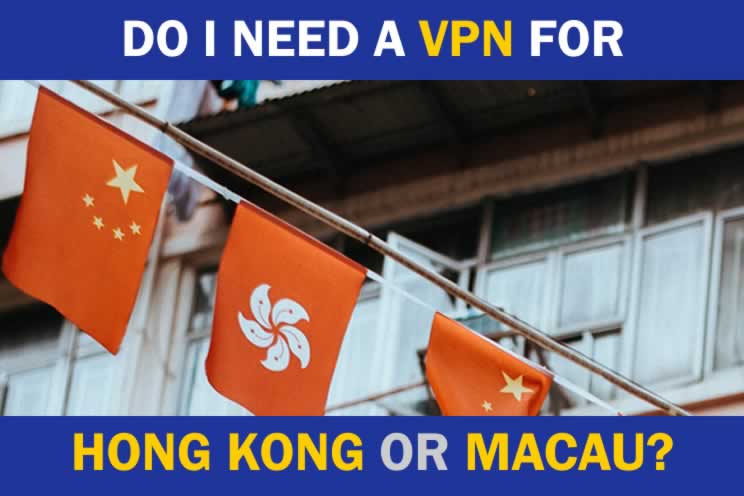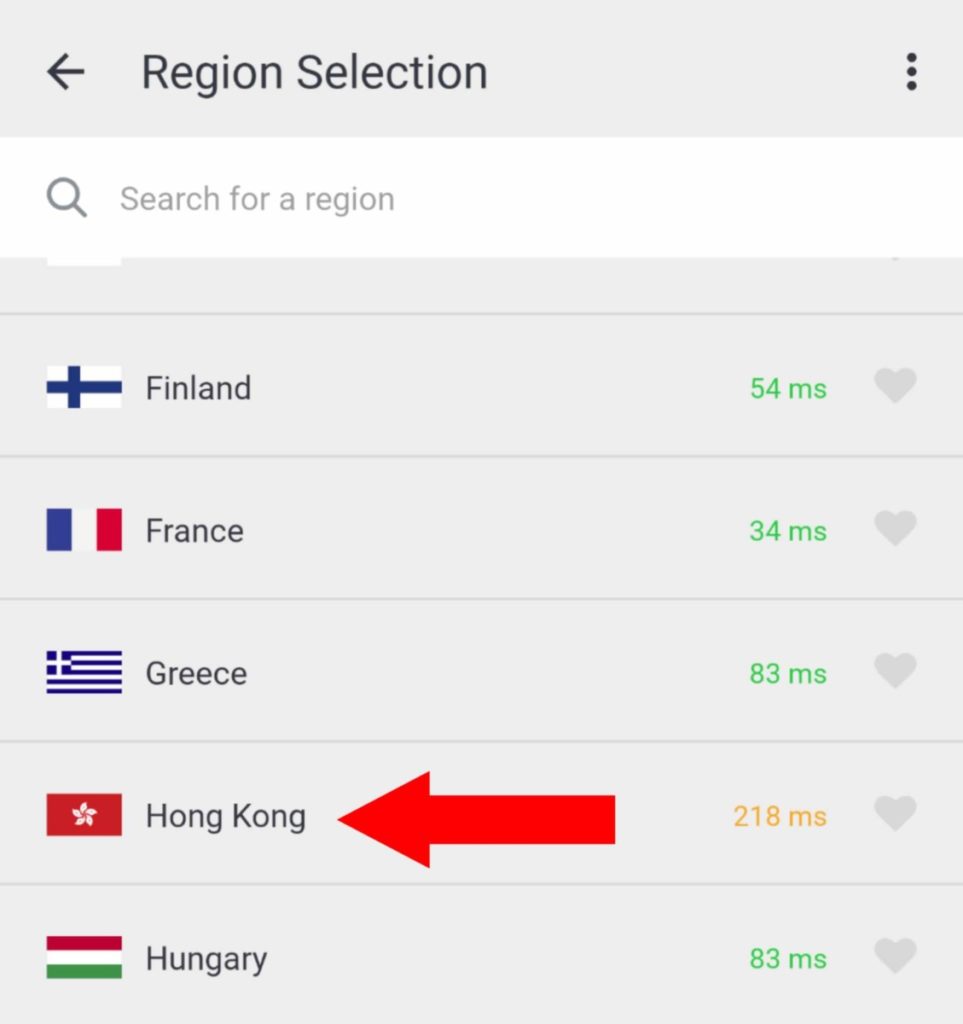
With all the protesting happening in Hong Kong recently against Chinese government proposals, made me think about using a VPN to get around censorship. I decided to first find out about Chinese government censorship in Hong Kong to see if a VPN was really needed.
Do I need a VPN for Hong Kong or Macau? A VPN is needed for Hong Kong or Macau to access geographically blocked content. New restrictions and heavy internet censorship are being put in place. With Hong Kong and Macau being included in the scope of the Great Firewall of China with it’s VPN detection technology, VPNs may become difficult to use.
The current Hong Kong government since 1997 has seen a steady change in it’s democratic foundations when Britain relinquished control over Hong Kong and passed it to China. With the mandate of retaining Hong Kong’s legal and administrative systems in place for at least fifty years, as Hong Kong became part of the Chinese ‘One Country, Two Systems’ concept.
Are VPNs legal in Hong Kong?
Whilst there are no legal restrictions in using a VPN in Hong Kong, Chinese restrictions may apply. Many popular providers like ExpressVPN, NordVPN to Private Internet Access all have VPN servers in Hong Kong.

As you can see in the picture above, the latency is pretty poor but that is because I am thousands of miles away from Hong Kong, where the latency would be much better.
Talking of latency, the Chinese authorities could potentially use their Great Firewall to make it difficult to use a VPN by throttling bandwidth and speeds of suspected VPN connections, especially now as Hong Kong falls under the Chinese security laws.
Previous to the Great Firewall, potential threats would have been using cyber attacks, designed to slow down VPN servers, rendering them ineffective of processing VPN connections. Whilst this type of attack is possible, I have not come across any details of these types of cyber attacks during my research into Hong Kong VPNs.
Use a VPN to avoid monitoring internet activity
With internet censorship coming to play in Hong Kong and Macau, against the goals of the “One country, Two systems”, 2020 has become a turning point. As both regions special administrative status was believed to provide them protection against Chinese censorship.
It is still unclear what additional measures are being secretly pushed through in Hong Kong under Chinese influence to try to make Hong Kong’s internet more restrictive in terms of freedoms.
It is essential therefore to use a VPN to retain privacy and stay one step ahead of the censorship taking place. At the moment it may seem there is nothing much happening in the internet censorship landscape, as most of this is happening secretly in the background. However using a VPN from the outset will ensure you do not end up laying a trail of breadcrumbs of internet activity.
How can I get a VPN in Hong Kong?
It’s important to make sure any VPN to use isn’t being monitored when privacy it of the utmost importance. Many VPN providers have VPN servers in Hong Kong, with very few in Macau, so it’s important to consider the following points when making a decision on which VPN to use.
1. Don’t use a Chinese VPN provider
When using a VPN, it may be prudent to stay away from Chinese VPNs especially if your privacy is paramount to you. These VPNs even though they will have VPN servers in Hong Kong will not necessarily provide the reassurance any activities are not being logged and copies of logs are not being sent across the border into mainland China.
It may be tempting to use these VPN services as they will most likely be faster than alternatives, but this will only be a tactic to lull you into a false sense of security. I stated earlier VPNs could be deliberately attacked to slow them down, so it would only be natural to try to pick a faster VPN and that could end up being one from a Chinese provider.
2 Don’t use a Hong Kong VPN provider
The same could be held true for Hong Kong VPN providers as their Chinese counterparts, in as much as they could be allied to the Chinese government and as such keep logs of all activities taking place.
They may also monitor activity, and anything considered subversive and not acceptable to the Chinese authorities could easily be relayed onto the Chinese authorities.
It is also difficult to know whether the VPN servers themselves may be compromised, allowing authorities to monitor everything on the VPN connections being made, even when there are no logs being kept by the VPN services.
2. Use a reputable VPN
It makes a lot of sense to use a reputable VPN (check out my latest list) to make sure you are fully protected against any monitoring, allowing you to remain anonymous on the internet. It is best to avoid the following types of VPNs listed in the points below.
No FREE VPNs – Stay away from free VPNs as these can often be riddled with malware and spyware. These free VPNs can easily steal sensitive information like passwords and credit card details, which will make internet privacy pale into insignificance especially if your identity gets stolen. Free VPN services may be rogue, in that they could be run by state actors like China and North Korea.
No VPN browser extensions or plugins – Stay away from VPN browser extensions and plugins, as these could also be riddled with spyware and malware. These extensions and plugins literally can have the ability to see everything you do on your web browser including entering confidential information, allowing them to steal this information with ease.
These extensions and plugins only protect web browser traffic and believe me, there is a lot more traffic leaving your computer, smartphone or tablet than just web browser traffic, easily allowing your identity (from your real IP address) to be worked out.
One final point about web browser extensions and plugins is they may not actually do what they mean to do, as they could be poorly designed and coded. So, you end up with a VPN extension that encrypts connection using low quality encryption, which is easily crackable, or which does not even bother doing any encryption at all, thereby providing absolutely no protection whatsoever any protecting your privacy.
No leaking VPNs – Another thing to watch out for is VPNs leaking information, especially about your real IP address. When you use a VPN, any websites you visit will only see the IP address assigned to you by the VPN. This gives you a level of privacy protection as the website would need to contact the VPN to find out who was using the IP address and it is unlikely a reputable VPN would give that up.
However, some VPNs leak their customer real IP address so when connections are made to websites, they become aware of your real IP address and only need to contact your Internet Service Provider (ISP) to find out who you really are, subject to a relevant court order that is.
Common leaks include DNS leaks where your web browser uses your ISP’s DNS servers to locate websites on the internet instead of the VPN DNS servers, to WebRTC leaks, where traffic to voice calling to instant messaging circumvent your VPN thereby giving up your real IP address.
3. Use VPN servers in censorship free nations
When friends I know who live in Hong Kong use a VPN service, they tend to use a reputable VPN provider as mentioned earlier but also make sure they connect to VPN servers in countries considered to be censorship free nations.
So, they tend to connect to VPN servers in countries like Australia, Japan, South Korea to name a few instead of connecting to VPN servers in Hong Kong. It is important to note, these countries themselves may also have their laws or may be part of intelligence sharing schemes (14 eyes) whereby details of VPN users and their activities could be shared.
Conclusion
Using a VPN makes sense when accessing the internet in Hong Kong and Macau. Accessing popular websites like Facebook, Twitter, YouTube to using Google search (without restrictions) will become more difficult in Hong Kong, just as it is in neighboring China, as most likely heavy censorship will take hold.
The internet landscape is changing rapidly, with many worried about China exerting influence through the Hong Kong Cabinet to find ways of getting more censorship implemented in Hong Kong.
Especially in light of the continued protesting by many from Hong Kong, angry at the proposed changes around China forcing the Hong Kong judiciary to implement plans allowing extradition of Hong Kong inhabitants to mainland China.
With many fearing such a tactic would seriously affect the judicial independence, with dissidents living in Hong Kong being put in danger.
UPDATE: With China imposing new security laws on Hong Kong (1st July 2020), the impartiality of Hong Kong’s judicial and legislative systems has been brought into question.

